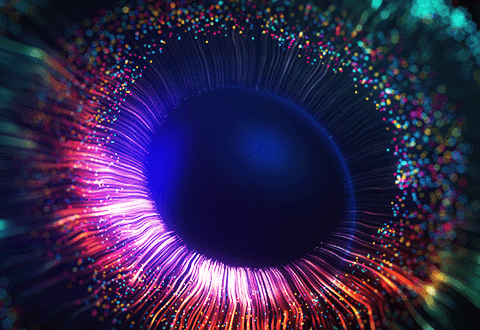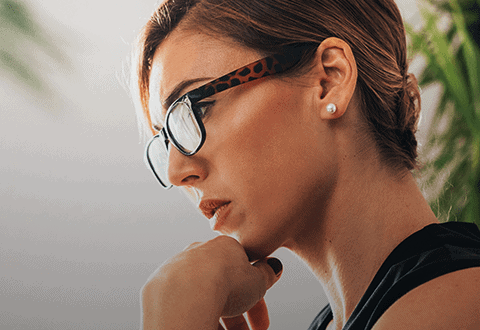COVID-19 Eye Safety Update: Glasses Are Safer Than Contacts

The Access Eye team cares deeply about the health and safety of our patients, particularly during these trying times. We feel a duty to educate our patients as to how they can avoid getting or spreading COVID-19.
As eyecare providers, we are especially concerned about our patients who wear contact lenses. According to the experts at the American Academy of Ophthalmology, contact lens wearers may be more susceptible to COVID-19, and should switch to wearing glasses if possible. Read on as our team explains why.
Why Contact Lens Wearers Should Consider Glasses Right Now
Health officials have announced that you can get COVID-19 from touching something that has the virus on it and then touching your eyes, nose or mouth.
Although contact lenses in and of themselves do not increase the risk of COVID-19, if you wear contacts, touching your eyes is a part of your daily routine. Even if you are diligent about washing your hands and caring for your contacts, you still put yourself at heightened risk of getting COVID-19 and other viruses.
Along with the AAO, we strongly encourage you to switch to your glasses right now, which will help you avoid touching your face throughout the day. If you need to adjust your glasses periodically, we recommend you do so with a tissue instead of your fingers.
Furthermore, glasses provide basic protection against infected respiratory droplets (i.e., those particles that someone with the virus can spread when coughing, sneezing or talking). Droplets can still get into your eyes from the top, bottom or sides of your glasses, so if you know you will be in close contact with someone infected with COVID-19, you should wear safety goggles for added protection.
Additional Safety Tips
Whether you wear corrective eyewear or not, avoid itching or rubbing your eyes. If your eyes feel irritated or scratchy, use a tissue instead of your fingertips. If dry eye disease naturally makes your eyes irritated, use moisturizing eyedrops.
If you must administer eyedrops for another type of disease, wash your hands first with soap and water for at least 20 seconds. After you have administered the medication, wash your hands again.
















